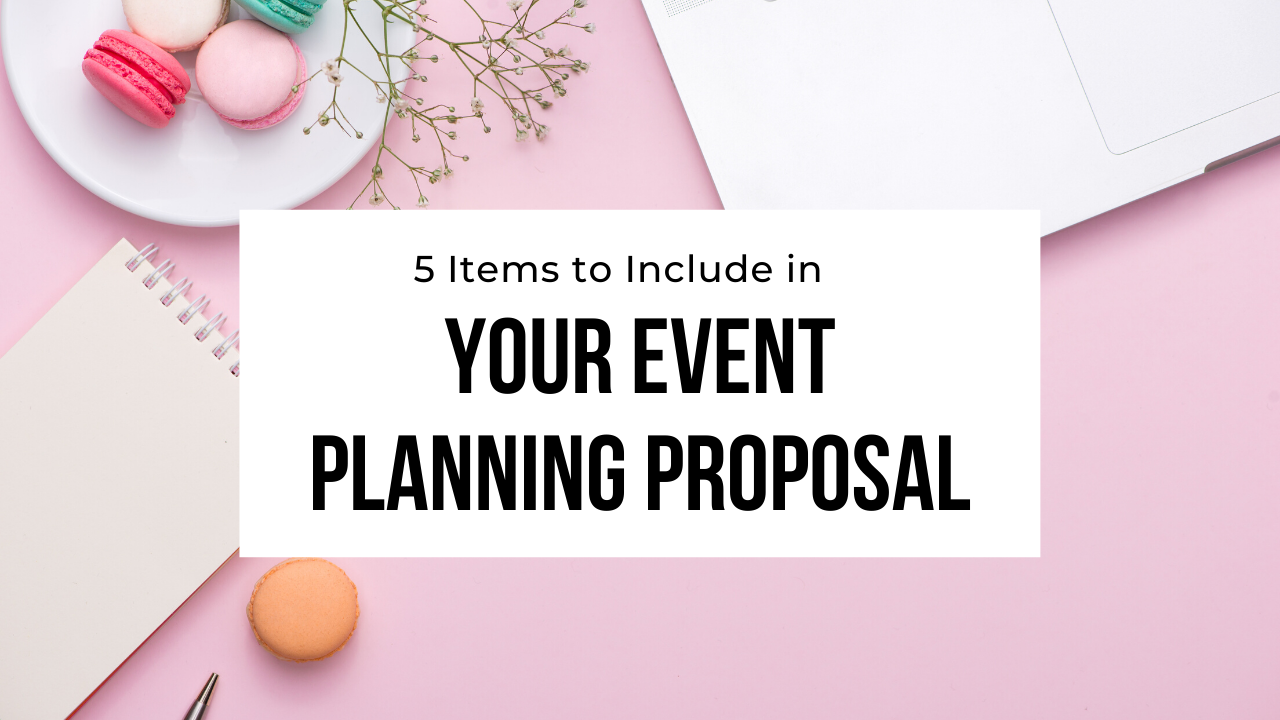
A major part of running an event planning business is being able to write a proposal that will catch the client’s eye and get you booked. However, if you are new to writing proposals this can be overwhelming. Don’t worry, that is what we are here for.
This list of the top 5 items to include in your event planning proposal will get you started in the right direction. Once you have learned how to write a basic proposal that will get you jobs then you can use it as a template for other events. So what are the 5 things you need to include?
- Introduce your business
- Event details
- Cost overview & what is included
- What happens next
- Past work
An event planning proposal’s importance can’t be overstated. A good proposal helps to show clients exactly what you’re capable of, what the experience will be like working with you, and most importantly, why they should hire you. Here are 5 key elements to include in your event planning proposals:
1. Introduce Your Business
What we mean by introducing your business is that you confirm what the potential client already knows about your business, and also add any information they might not already know. What’s unique about your company compared to the other event planning companies out there? What makes you different? What’s your client experience like and why are customers often impressed with your services?
This is also a good place to include past client experiences and reviews, your business values, and what the client can expect from you before, during, and after the event. This is a time to build confidence so they can feel good about the decision to hire you.
2. Event Details
In this section of the proposal, you need to summarize the event that you are hoping to plan. The details should come from what you and the client discussed during the first client meeting. That first meeting was an interview and the proposal is the follow-up.
This is the time to show the client that you listened and took their vision to heart. If you leave out something that was key for the client then they may lose confidence in your services. Event details don’t need to be too specific at this time but make sure you don’t miss anything. This area is essentially your personal recommendation to the client on what they would like to see and what you’re able to provide.
3. Cost Overview & What is Included
Another section that is imperative to a successful event planning proposal is the cost overview and what is included. Don’t leave anything to chance here. Be very detailed with your pricing and be clear on what’s included and what’s not included. This should also be a detailed list of the services that are included in that price and what can be added for an additional fee.
If you need help pricing your event planning services, check out this pricing guide.
4. What Happens Next
A potential client will want to know what the next steps are. If they feel like the next step isn’t clear than they may go with an event planner that they felt communicated that better. Make sure you include what happens next should they approve the proposal and hire you.
This is the area to highlight your policies, your proposal deadlines, your booking timeline – essentially all the information that will help your potential clients to make an informed decision within a specified time frame.
5. Past Work
Your proposal should be geared to booking your clients and nothing does this better than including samples of your past events. The key here is to not make it random, but very specific and personalized. Include samples of your work that is most closely matched to the type of event or theme that your potential client is looking to host. For example, don’t include samples from a corporate event in a proposal to a wedding planning client. You clients will need to be able to visualize themselves in the event, so make it easy for them to do so.

